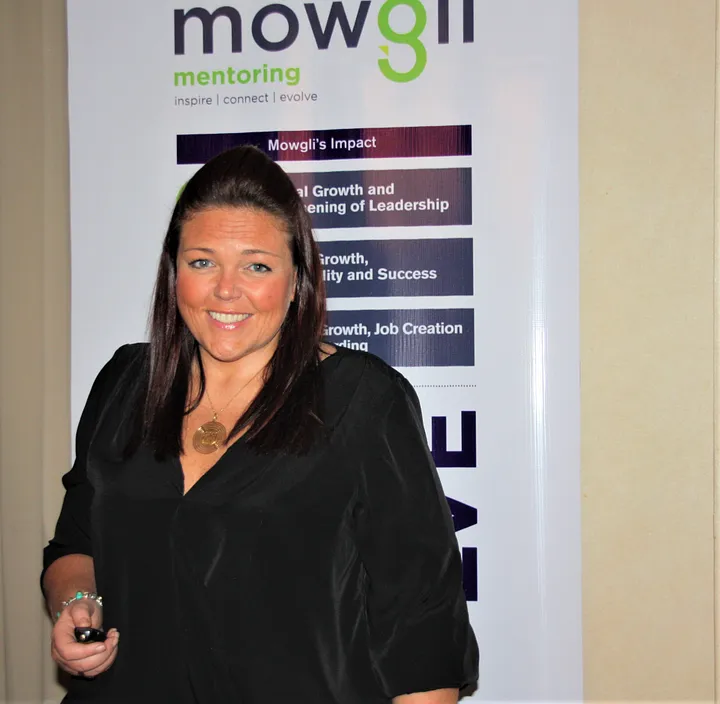Kathleen Bury is a women’s empowerment advocate and the Chief Executive Officer of Mowgli — a social enterprise dedicated to empowering entrepreneurs and organisational leaders through holistic mentoring. Mowgli Mentoring partnered with UN Women to implement a mentoring programme that supported 200 women refugees and Jordanian entrepreneurs across Jordan, with the generous support of the EU Regional Trust Fund in response to the Syrian Crisis (the”Madad Fund”).
What are the main challenges and barriers for women entrepreneurs in Jordan?
In Jordan, women represent only 4.3 percent of the country’s entrepreneurs. Women confront considerable challenges in opening a business in Jordan, including societal, psychological, and gender-related barriers.
Five key internal interferences and struggles that women entrepreneurs share with us that prevent them from pursuing economic opportunities are:
1. Guilt for investing much time and energy into developing an idea which has no certainty of success.
2. Balancing time on work and time spent with the family.
3. The loneliness and stress that comes with being an entrepreneur.
4. The self-belief that they can go after what they want.
5. Self-confidence to take calculated risks in their professional and personal lives.
How can mentoring empower and support women entrepreneurs to overcome these challenges?
To overcome the challenges and for women entrepreneurs to grow successful and sustainable livelihoods and businesses, it is critical that they have someone who is trained, impartial and stands next to them in a shoulder to shoulder relationship.
That is where mentoring comes in. A mentor plays the part of a confidante, guide, cheerleader and sounding board to help them think through challenges and options so that they gain clarity, offer feedback and share wisdom to empower them to find their own solutions.
The ‘Mentoring for Success’ programme paired Jordanian and Syrian women entrepreneurs with carefully selected Mowgli trained mentors from the same areas. Both mentees and mentors began their eight-month journey towards building confidence, motivation, mindset, leadership, and resilience.
What are the stages of the ‘Mentoring for Success’ programme?

The one-to-one and peer ‘Mentoring for Success’ programme, is delivered in four phases, where both mentors and mentees were trained, and prepared for their relationships.
Stage 1: Mentoring Awareness Sessions to raise awareness about the importance and benefits of mentoring and provide information about the programme.
Stage 2: Entrepreneur and mentor shortlisting, interviewing and selection
Stage 3: 3-day Kickstart workshop- an intensive and highly interactive and experiential workshop where mentors are trained, entrepreneurs prepared and on the final day mentors and entrepreneurs are matched.
Stage 4: On-going supervision, support, and facilitation of the matched mentoring relationships.
How does mentoring extend beyond the professional realms and support women entrepreneurs in their personal and community lives?
By supporting the development of a trust-based relationship, the mentees are able to identify, explore, and reflect upon the critical areas that hold them back from truly unlocking their potential, both in terms of professional and personal concerns. These include fears, limiting beliefs, insecurities, and psychological factors. Through reflecting on the personal aspects as well as their professional lives, the mentees gain clarity on the way forward and are able to decide for themselves on the action or change they wish to take forward so that they can accelerate their prosperity in both their professional and personal lives.
Mentoring also encourages greater societal interconnectedness, strengthens leadership, and enables communities and countries to fulfil their long-term economic and social potential sustainably.
Tell us about the Mowgli and UN Women partnership, and how has it addressed the needs of women entrepreneurs in Jordan?
In partnership with UN Women, Mowgli provided one-on-one mentoring for Jordanian and Syrian women entrepreneurs from low socio-economic backgrounds in the Governorates of Karak, Maan, East Amman, Zarqaa, Tafileh, and Shobek.
Through the programme, we were able to recognise the impact mentoring had on the professional and personal lives of both mentees and mentors. Thirty percent of the mentees under the programme who were not economically active before were able to establish new businesses, and the mentees and mentors with start-out micro-businesses recorded a 20–30 percent increase in revenue. All participants engaged acknowledged that their self-confidence had increased, as well as their resilience and ability to respond to challenges.
We have also recognised that the impact of the programme extends beyond the individual level of the entrepreneur, as it becomes a sustainable source of income that pours into the entrepreneur’s host community and also opens up the door for women to become job-creators for other women in their communities’.

